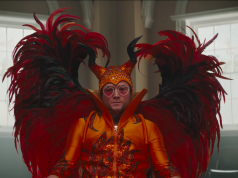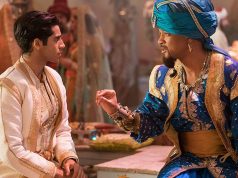The last Disney animated feature to be a huge success was 1994’s “The Lion King.” The ones since then, while doing so-so at the box office, have failed to register with audiences for one reasons or another. “Pocahontas” was boring and stupid (pardon my bluntness), “Hunchback of Notre Dame” was too dark for kids, and “Hercules” was too light and airy, like eating cotton candy — you watched it, and the next day you forgot you ever saw it.
Fans of the franchise will be pleased to know, then, that the new “Mulan,” which opened last Friday, hearkens back to the days of “The Lion King.” In fact, “Mulan” has perhaps the best combination of humor and seriousness of any of the Disney cartoons. “Hunchback” was TOO serious, without enough humor to balance it; “Aladdin” and “Hercules” were very funny but with little depth; even the classic “The Little Mermaid” had little to offer in the way of serious themes or morals.
But “Mulan” has it all. It has very serious themes, but it is also quite consistently funny, demonstrating a perfect balance never before reached by the folks at Disney.
Mulan is the best cartoon heroine ever. She’s not a generically feisty, play-by-your-own-rules, who needs men? kind of gal like, say, Belle in “Beauty and the Beast.” She lives in China several hundred years ago, when women were true second-class citizens, expected to marry whomever was chosen for them, and expected to shut up when men were around. Mulan doesn’t really hate this sort of society — she’s not trying to change all of Chinese culture — she merely wants to know how she fits in to it.
When the Huns attack China, one man from every family must join the Imperial Army. To save her ailing father from what would certainly be his death, Mulan disguises herself as a man and joins the army. Assisting her is a wacky little wise-cracking dragon named Mushu (voiced by Eddie Murphy), who was summoned by Mulan’s ancestors, sort of, to make a hero out of her, thus proving himself a worthy guardian.
Mulan uses her brains — as opposed to the men’s brawn, which is what men usually rely on, especially in war — to save the day a couple times before her true gender is discovered. Later on, though, she saves the day — and China — once again, this time by making some of the MEN dress as WOMEN, deceiving the guards, etc., etc.
You get the idea: There are some skills that only men possess, and others that the women have, and to accomplish some goals, you need to use both. But the message here is deeper than a simply gender-equality issue. In the process of everything, Mulan truly finds herself, comes to accept her heritage, and brings great pride and honor to her family.
The theme of most of the Disney cartoons of the last decade has basically boiled down to “Just Be Yourself and You’ll Be Happy,” but none have demonstrated this as well and as poignantly as “Mulan.” And none have been as simultaneously funny, either. Parents should find this a joy to watch with their kids, and kids will love it, too.
A- (; )





